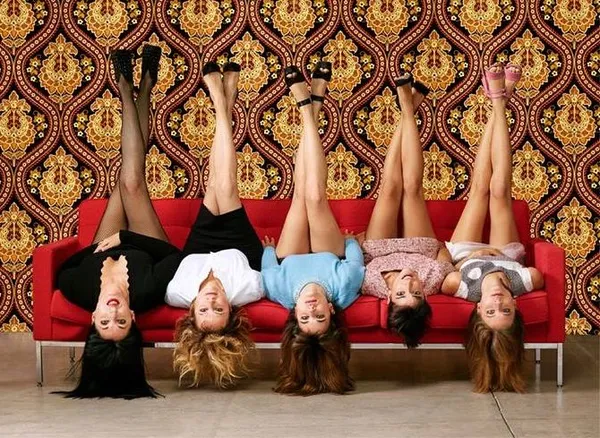Speaking in Cannes before the red carpet screening of Julieta tonight (May 17) - which stars Emma Suárez, Adriana Urgante, Rossy De Palma and Daniel Grao - he said the film represented the way he feels, saying: “For me at the moment the passage of time is important. I am bit older than most of you. It is not that I feel like an old man but I am getting there. I never would have been able to make this film until now when I am 60-something years old.
“I am not a nostalgic person but I very much miss my youth and I miss those years of my youth - the Eighties.”
 |
| Pedro Almodóvar: 'I am not a nostalgic person but I very much miss my youth...' Photo: Richard Mowe |
When he began, some 20 films ago he was a rather campy and flamboyant Iberian icon who brought out of the closet Spanish cinema and a whole lot more besides.
Certainly he used to enjoy living up to the sexy and kinky plots of his early films that went off at wacky angles, reflecting the sudden rush of freedom and hedonism in post-Franco Spain.
His bushy grey-flecked hair is flourishing while a previously expansive waist-line has been trimmed.
Nobody has written a biography of him, either authorised or unauthorised and he would not agree to one.
“I identify with all the characters in my films for better or worse," he says. "All represent me in one way or another. Julieta is very different from The Skin I Live In and Broken Embraces. These 20 films I have done all represent me. I have never written any kind of autobiography and I have never let the publishing houses write any biographical books about me. I do not want any authorised or non-authorised biographies about me. And please do not let anyone do a biopic about me. Pass on the message to future generations that my life is in these films.”
 |
| Emma Suárez Photo: Richard Mowe |
Almodóvar has never been one to opt for discretion. When the question of the Panama Papers is raised, he is ready with an answer to the story that he and his producer brother Agustin created an offshore outfit in the 1990s.
“My name and my brother’s name are some of the least important names in the Panama papers. If it was a film, we wouldn’t even be extras. The Spanish press has cast us in leading roles. There are so many names and there hasn’t been enough investigation yet.”
As a result of the brouhaha he cancelled Spanish media activity when the film opened in Madrid.
The man from La Mancha has progressed from punk personality to become a kind of national monument, at once revered but also the object of insatiable curiosity.
_225.webp) |
| Almodóvar regular Rossy De Palma Photo: Richard Mowe |
“Instead I have to find it within myself. Everything around me is becoming very artificial, therefore it is increasingly difficult to find reality. I prefer to make films in which I don’t feel obliged to push my own emotions to the fore because I have become a bit bored with my own melancholy and sadness.”
Almodóvar admits that kitschy elements helped to define his early style and also the characters. He may even have used it as a smokescreen to obscure the real Almodóvar. “I don’t know if I hid myself behind the kitsch, but it’s true that I do hide myself behind my characters. They are all parts of me, even if none of them have exactly been a self-portrait. Today I am less inclined to hide myself. Even although I have the habit of talking about myself a lot, I have learned to be more discreet. Certainly, I’m guarded in terms of my private life, but when I write I have no such inhibitions.”
Almodóvar has all the candour and relaxed air of someone who has exorcised his demons. Originally when as a teenager he left the stifling atmosphere of the strictly Roman Catholic environment of La Mancha, the situation within his family was “very unpleasant and tense”.
“My mother like all women of strong character was very possessive and so was my father. I was closer to my mother, but the best thing for me at the time was to get as far away as possible, which meant Madrid,” he recalls.
He tried a bit of everything: creating comic strips, performing in a drag show, singing in a rock band, and earning a daily crust by working for the telephone company. “As time goes by you recognise the value of your family, and they recognise who you are. And little by little I’ve become aware of how important my mother’s been, not only in my life, but also in my career.”
 |
| Adriana Urgante Photo: Richard Mowe |
Such strong influences have informed his work, frequently unconsciously. He feels no need to justify the strong female content of his films. “But the reason I make films about women is that they’re more fun. They have more secrets, more capacity to surprise. They are also more shameless and tell their girlfriends even what they do in bed with their husbands.”
Almodóvar in his middle years harbours regrets for the lost Madrid of his youth. He notes that many of the places he used to hang around have closed. The Movida (the cultural reawakening) happened between 1977 and 1983. “And it remained quite exhilarating until ‘82. During that period it was the most joyful, the most fun, and the most permissive city in the world.
“If there was something characteristic about Madrid, about the culture of Madrid, it was its nightlife. That was my university and the university for many others. The Movida wasn’t an ideological movement, nor a generational one. It was an explosion in the wake of repression. The young and the not so young decided to get some pleasure and joy out of life, rather than the political posturing and protest movements of the Seventies.”
_225.webp) |
| Daniel Grao Photo: Richard Mowe |
“All my first films were built around this nocturnal universe. We didn’t know how long it was going to last because all good things come to an end, as we know. I knew what I wanted to do, and I seemed to have the stamina to do it. It was a very creative period for everyone including designers and musicans. Strangely writing did not take off in the same way, we did not find our very own Jack Kerouac.”
He also tried out his talents as an actor, more out of necessity than design when someone failed to turn up at the shoot. “I don’t have an actor’s vanity,” he says. “Now the only time I get up on a stage is to present one of my films which I quite like doing and try to turn it into a one man show.” He does, however, use his acting skills to demonstrate to his cast exactly what he wants. “I do know how to play the characters I have created,” he says.
So has he become conscious of the maturing of his work? “I guess it’s part of how I feel even if I can’t say why or what it consists of. People are always trying to make me conform to my reputation, this image of someone who is a bit of an agent provocateur still follows me around. I don’t actually like having my photograph taken because you can see yourself growing old, little by little.
“If it was possible I would refuse to do any photographs from this point on. As for interviews I give them only because I want people to understand exactly who I am. It’s a bit tedious that there are so many false notions about me floating around. At the end of the day it’s not that serious. What is certain is that anybody who meets me is always in for a surprise. They never think of me as I am.”
Julieta on release in the UK on 24 August.






















